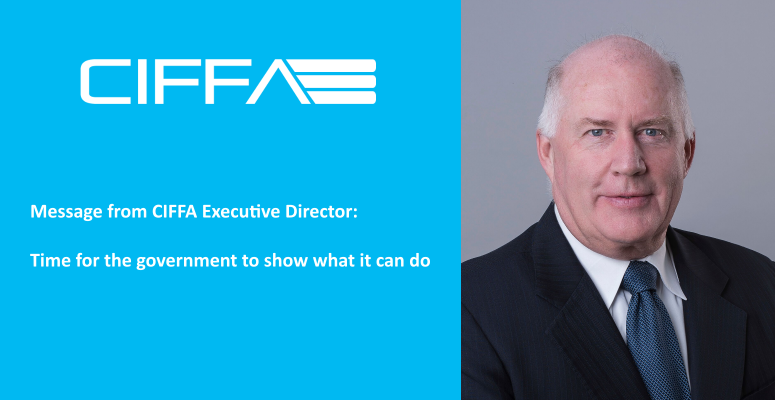
EXECUTIVE DIRECTOR’S STATEMENT: BRUCE RODGERS, CIFFA
Executive Director’s Statement-Bruce Rodgers
Time for the government to show what it can do
Will Montreal have the same sad experience that Vancouver just suffered in July? Or will an effective federal government – normally all too willing to intervene in the economy – take steps to avoid a labour stoppage at the Port of Montreal which will damage the city’s economy, especially small businesses.
The Port of Montreal Longshoremen’s Union and the Maritime Employers Association are meeting now. The parties are already alleging bad faith. A legal strike could occur in January of 2024.
This negotiation takes place in a period of considerable change in the shipping sector.
As recently reported on the Port of Montreal’s intermodal performance report, volume of containers transiting the Port of Montreal declined 14.5% year to date.
Meanwhile, as their members go home to families wrestling with persistent inflation, unions are watching automation threaten their future jobs.
It’s not surprising that in negotiations around North America they seem to have opted for longer contracts – 6 years in the U.S. West Coast ports and 4 years in Canada’s Pacific – and broader work rules to allow their members to diversify their roles.
The negotiations on Montreal will likely involve all the same issues.
When the strike ended on our West Coast, many voices expressed frustration with the process and the unnecessary costs to our economy – hundreds of millions in just a few weeks.
One of those voices was that of Labour Minister Seamus O’Regan. Reflecting on the torturous process and heavy cost to consumers and businesses, he declared he would invoke Section 106 of the Canada Labour Code to examine “the structural issues underlying this recent dispute, as well as similar disputes that have occurred at our ports across Canada.”
O’Regan’s frustration was echoed by others. The Greater Vancouver Board of Trade said: “Moving forward, the federal government needs to expand its options for addressing labour disruptions that impact the national economy and supply chains.” The Federation of Independent Business was more direct, urging the government to class ports as essential services.
Even the employer group involved in the strike expressed regret for the “profound repercussions this disruption has had on the national economy, workers, businesses…”
So, if everyone thought the process on the West Coast was terrible, why are we doing it again?
The pattern always seems the same. The parties signal their hostility early in the process. The federal labour minister declines to intervene, citing the need for normal negotiations to take place. But when those talks break down and the huge impact of port closures is felt, the government moves pretty quickly. Port workers are not deemed essential. But when they stop working… it turns out they are.
So, why go through the tedious process? We all know how it will go. The parties will be fine. Only the rest of us will actually suffer.
These strikes are not consequence-free for consumers. A 12-day strike in Montreal in August of 2020 cost local businesses an estimated $600 million.
A Transport Canada study assessing the potential of another strike predicted costs of tens of millions a week.
These costs are insidious, hard to pin down, but they are nonetheless real. As Canada tiptoes along the edge of recession, and consumers suffer sharply increased costs, the last thing Montreal needs is another self-imposed economic blow.
We welcomed the Labour Minister’s comments after the fiasco on the West Coast in July. Now he and his colleagues have the opportunity to show their skills and manage this situation.
Mr. O’Regan, complete your “examination of the underlying factors” and propose some solutions.
Should port workers be “essential?” Or do you have some proposals to move the parties into a new agreement without the usual collateral casualties; small business and consumers?
Head off a strike before it occurs, and protect the people and businesses of Montreal.
Bruce Rodgers Executive Director, CIFFA



